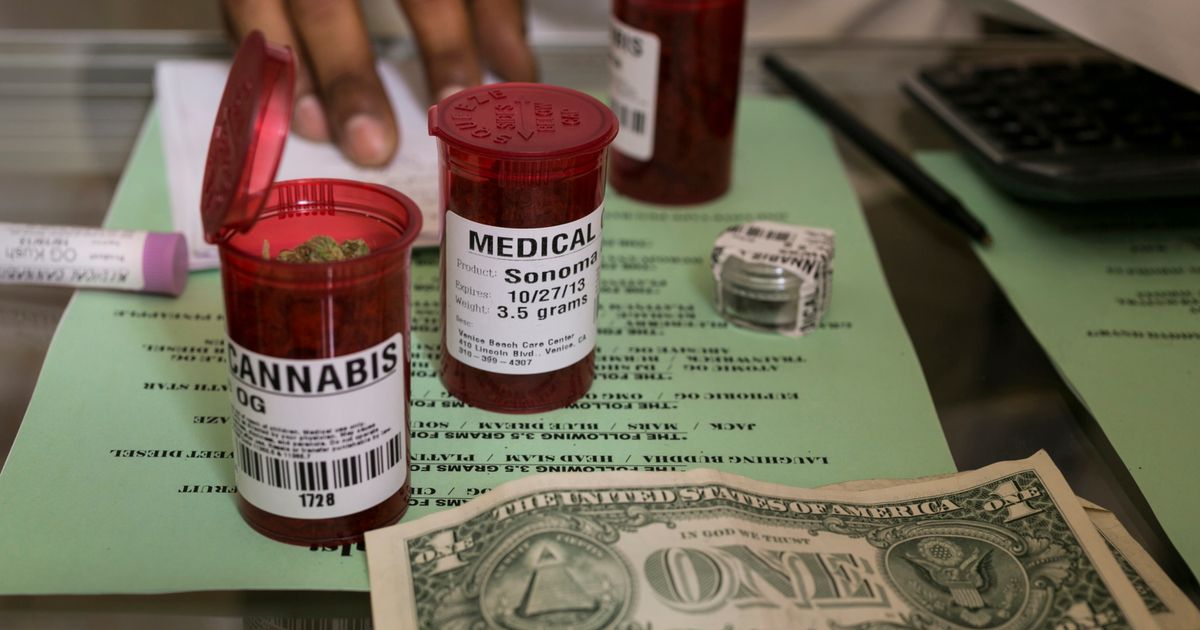Federal drug officials are warning Georgia to shelve its plans to be the first state to allow pharmacies to dispense medical marijuana products.
News outlets report that the U.S. Drug Enforcement Administration on Nov. 27 warned pharmacies that dispensing medical marijuana violates federal law.
Fine, who would want Walgreens, Walmart and CVS to be where you get your weed? I would rather buy it at independent stores both for atmosphere and that large pharmacies are shitty companies in every way possible.
Because it’s a prescription medication, just like any other. It’s far more convenient to pick up prescription just like you do any other.
There will be far fewer dispensaries than pharmacies, so less choice, more driving, and worse hours.
Dispensaries vastly outnumber pharmacies in the towns I’ve lived in (Oregon, Colorado, New Mexico) and also have more convenient hours (Denver they’re 8 am - 10 pm). I also have doubts about the varieties they’d stock and the quality. Being prescribed cannabis in most states means you shop at regular stores and get a discount, or in non-rec states that you can go there at all - and they tend to have a tremendous variety. It’s not like being prescribed a pharmaceutical that comes in one brand and a generic pill like most prescriptions.
I’d also much rather talk to someone who understands cannabis and cannabinoids topics - RSO, CBD, edibles, dabbing and so forth - than a pharmacist. I would anticipate a pharmacy giving much worse overall service than a dispensary.
Canada legalized years ago and there are dispensaries all over the place in cities! If you’re in living in rural areas obviously there’s not as many, but still one or two within reasonable distance.
Remote areas have their stuff mailed in.
Right. Where I lived in Denver, there were 4 dispensaries in wakking distance and 1 pharmacy, Walgreens.
The only exceptions are the small conservative towns that banned dispensaries in their city limits or counties saying “we don’t want DRUGS in our city!!” So the stores set up just outside of city limits and the cities have just as much weed and no tax revenue.
If you’re talking about the Springs, the whole county has banned recreational. Manitou is able to have them because it’s a home-rule city.
Those who oppose rapid legalization of marijuana said the DEA’s stance will protect consumers and allow time for more research.
Rapid? US legalization started like 28 years ago. Nothing about the process has been rapid.
Biden priorities
Until it is seriously studied with results compared to alternatives (not always a placebo) it isn’t medicine doesn’t belong in a pharmacy. That applies to marijuana just as much as homeopathy (which also doesn’t belong in a pharmacy but is there)
Yes I know studies are hard and expensive. I’m also aware of all the other problems of getting FDA approval for products that are not patentable. Those are issues worth fixing and we can debate sometime what a good fix might be. However the process still exists for good reason, calling anything medicine that doesn’t follow the process is a lie.
Many of these places still sell cigarettes. CVS only stopped in the past 5 years… Not all things in pharmacies are medicine or any good for you.
Oh for fucks sake. People like you will never agree enough studies have been performed.
People like this always default to implying marijuana is some mysterious new invention. It’s quite hilarious to read living in a state that first passed MMJ laws 28 years ago and even more hilarious when you learn that people have been using it for thousands of years at this point.
The barrier to medical studies has been the Federal Government (DEA) for several decades. They’re changing it but slowly.
Since 1968 the only place researchers could legally obtain cannabis for research was from a government lab in Mississippi, and as noted below, they wouldn’t even give you any. Researchers who did obtain it noted it was often old, low potency, and generally low quality, making it not very useful.Linked DEA article:
On May 14, 2021, the Drug Enforcement Administration took an important step to increase opportunities for medical and scientific research. DEA is nearing the end of its review of certain marijuana grower applications, thereby allowing it to soon register additional entities authorized to produce marijuana for research purposes. Currently, the National Center for the Development of Natural Products at the University of Mississippi is the only approved supplier of marijuana for research purposes in the United States, and that production has been exclusively for the National Institute on Drug Abuse.
NPR notes:
Yet scientists still aren’t allowed to simply use the cannabis sold at state-licensed dispensaries for their clinical research because cannabis remains illegal under federal law.
“We’ll see a decade or more of explosive cannabis research and potential new therapies,” says Dr. Steve Groff, founder and chairman of Groff North America, one of three companies that has publicly announced it has preliminary approval from the federal government to cultivate cannabis for research.








